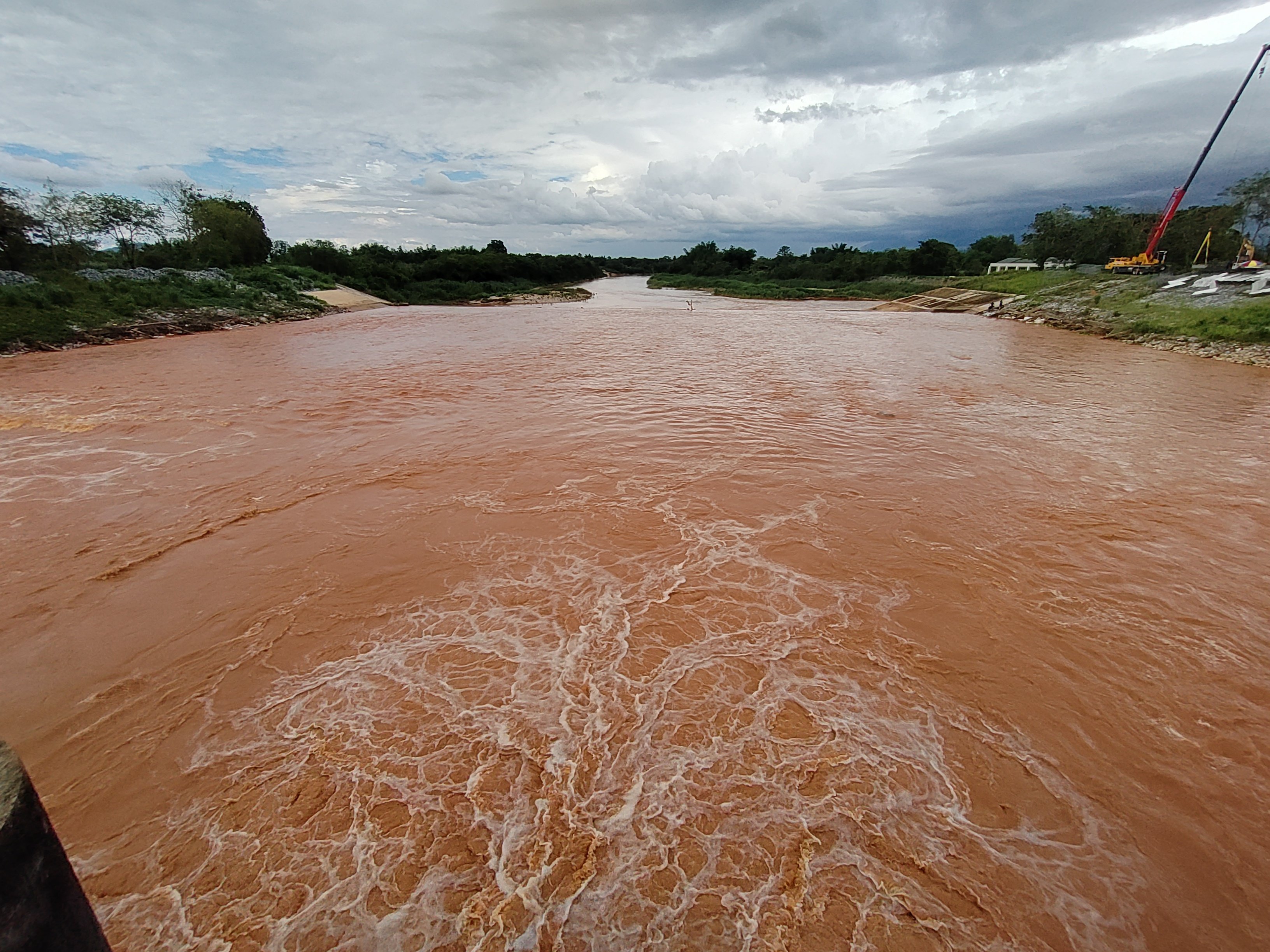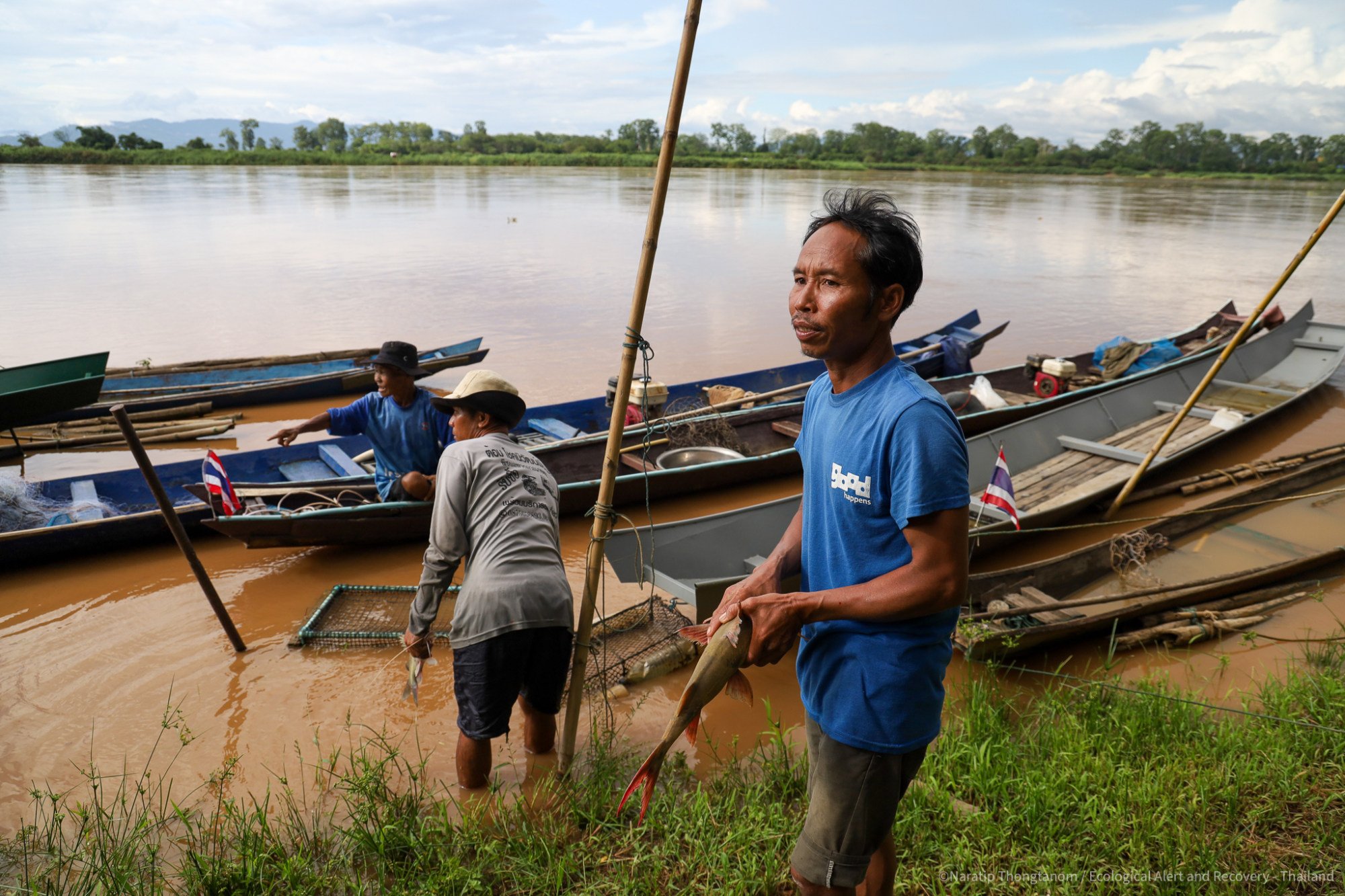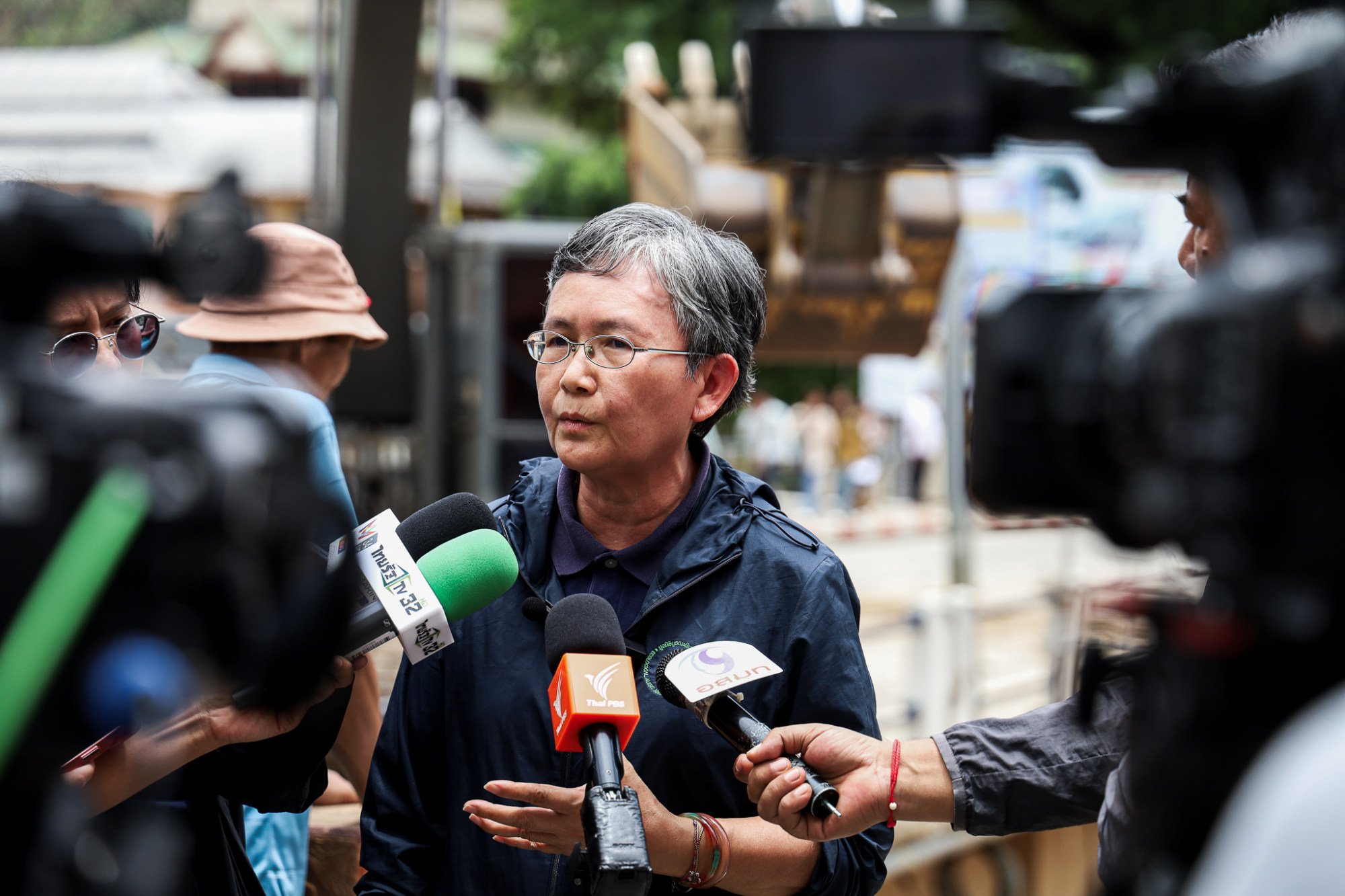Thai river turns orange as dangerous toxins from Myanmar mines flush downstream
Authorities say arsenic levels in the Kok Thai river now exceed safety limits, sparking fears of ecological disaster

Dangerous levels of arsenic in a northern Thai river contaminated by chemicals used in mines across the border in Myanmar risk unleashing an unprecedented ecological disaster on the kingdom’s waterways, environmentalists have warned, as images of the orange-yellow waters go viral.
Bangkok is seeking renewed talks with Myanmar’s junta to stop the toxic sediment flowing downstream into the Kok River, which runs from Shan State, in Myanmar through Thailand’s border province of Chiang Rai.
But the urgency of the health crisis for riverside communities – who have been warned not to wash, drink or eat fish from the contaminated waterway they depend on – is compounded by the fact that the mines are located in territory controlled by the Wa, an ethnic armed group notorious for drug production, unchecked resource extraction and opaque business ties to China.
Thai villagers started to notice the discolouration of the water in March.

However, satellite imagery suggests the contamination began as early as last September, when large upstream forest areas in Myanmar were cleared for mining – initially thought to be for gold, but now suspected to involve rare earths, based on the volume of chemical effluent released into the river.
“The river has gone an awful colour, almost yellow-orange,” Penchom Saetang, founder of Earth (Ecological Alert and Recovery Thailand), told This Week in Asia after a visit to the site.
“I think it is the largest case of transboundary pollution that has ever happened in Thailand. The ecological damage, destruction of fishing livelihood and to farming is severe, it’s on a large scale and the first case I’ve ever seen like this.”
She added that her group has collected water and soil samples from the river and its banks for analysis, amid concerns about the accumulation of heavy metals in the soil.
The toxic sediment has contaminated a river that serves as a vital lifeline for tens of thousands of fishers and farmers along the Kok River, which ultimately flows into the larger Mekong. With the water now considered unsafe, residents have resorted to collecting rainwater for drinking and washing, as authorities urge them to avoid contact with the river. Officials have proposed building small dams to help filter out the sediment as part of ongoing efforts to contain the crisis.
“The villagers are scared,” Tawatchai Montreekul, head of the riverside village Baan Rim Kok in Chiang Rai, told This Week in Asia. “We have been in contact with the water, we live off the water but nobody has come to check on our health.”
Fears are also mounting that the toxins could spread deeper into Thailand’s river system, including the Mekong – a crucial water source for 60 million people across Thailand, Laos, Cambodia and Vietnam, where it eventually flows into the sea.
Thai authorities in early May confirmed the presence of arsenic acid in the river at levels above safety thresholds. Environmental groups believe the situation is worsening.
“It’s getting higher, which indicates that the mining activities are getting worse,” said Pianporn Deetes of International Rivers. “This is organised environmental crime.”

“There are around one million residents in Chiang Rai. Once it is in the Mekong, arsenic acid can become a source of cancer, while other chemicals like cadmium have long-term effects that will only show up in a few years time.”
Describing it as the “largest transboundary contamination Thailand has experienced,” veteran clean rivers campaigner Pianporn said the crisis reflected the dire consequences of unregulated resource extraction and called on the Thai government to respond with urgent and decisive action.
She suggested this could include halting the flow of communications equipment, machinery and other supplies from Thailand into Wa State until the issue is addressed – similar to measures previously used to disrupt scam centres operating in Myanmar.
If left unchecked, she warned, the mining could inflict long-term damage on Thailand’s river systems and trigger a public health crisis for the communities that rely on them for food, water and livelihoods.
“Even if they stop mining right now, it will take years to recover,” added Penchom. “Heavy metals can stay long, they are persistent.”